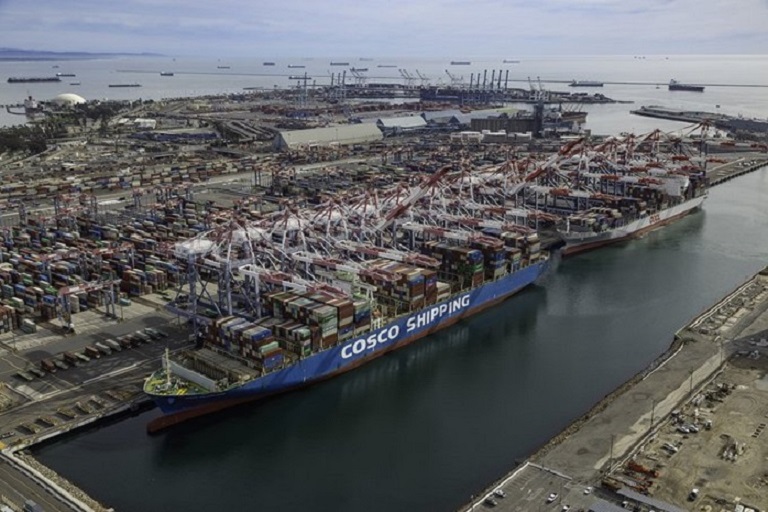Shifts In Consumer Demand, Shipping Patters Lead To Decline
Softened consumer spending, increased prices driven by inflation and a shift in trade routes contributed to a dip in shipments moving through the Port of Long Beach in January.

Dockworkers and terminal operators moved 573,772 twenty-foot equivalent units (TEUs) last month, down 28.4% from January 2022, which was the Port’s busiest January on record. Imports decreased 32.3% to 263,394 TEUs and exports declined 14.2% to 105,623 TEUs. Empty containers moving through the Port were down 29% to 204,755 TEUs.
“We are taking aggressive steps to meet a new set of challenges for the new year,” said Port of Long Beach Executive Director Mario Cordero. “I remain optimistic that we will recapture market share and develop projects that will enhance our long-term growth, sustainable operations and the reliable movement of goods through the Port of Long Beach.”
“We’re confident we will grow cargo volume by working with our industry stakeholders,” said Long Beach Harbor Commission President Sharon L. Weissman. “We are focused on investing in infrastructure projects that will improve air quality and make us more competitive.”
Economists say inflation is slowing for purchased goods and may offset rising prices for services, largely depending on how the Federal Reserve adjusts interest rates this year.
Additional information about the Port of Long Beach at CruiseMapper